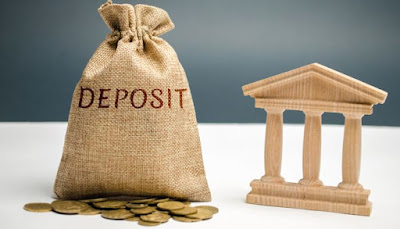You may have noticed that when you deposit money into a bank, sometimes you have access to that money right while at other times it might take a few days before it becomes available for you to use. Why the difference? Well, it often has to do with the way banks process different types of deposits. If you make a cash deposit with the teller at your bank, the money will often be available in your account immediately, or the next business day, depending on your bank’s policy.
Your teller will be able to let you know. If you deposit cash using your bank’s ATM, you’ll typically be able to access your funds right away. That’s because ATMs now automatically count the bills you insert, rather than waiting for tellers to verify your deposit later. Scheduled direct deposits from a payer like your employer are usually available in your account on your regular payday or the following business day.
That’s because the bank that the deposit is coming from will schedule a credit to your account through your bank in advance. That means that the processing making sure the account that the deposit is coming from has enough money to cover the transaction can also happen in advance. When you deposit a check at a bank or ATM, it can take a little more time because your bank needs to collect the funds from the payer, whose account might be at a different bank.
It works like this: When you deposit the check at your bank, they will send the check, or an electronic image of the check, to the payer’s bank. Some large banks work directly with each other to clear checks. But many others will send a check through an intermediary called a clearinghouse in order to process it. The clearinghouse will sort all the transactions coming from one bank to another and send the correct amount of money to each. Then the individual check amounts will be posted to each account.
Now, another thing to keep in mind is that even if some or all of your deposit is available in your account, it doesn’t necessarily mean that the check has cleared. If there isn’t enough money in the payer’s account, or if the check is fraudulent or counterfeit, the check will be returned unpaid. And this can happen after your bank has made the money available to you. So if you’ve already withdrawn the money, you’ll be held responsible for paying it back, and sometimes there can be fees associated with this.
Now, the amount of your check deposit can also affect how quickly the money is available. Generally, if your deposit is $225 or less, you‘ll have access to the money by the next business day. But larger amounts can take longer to become available. Your bank may make a portion of your check available within the next business day or two, but some banks may hold a portion of a check over $5,525 for multiple business days.
Also Read, Top Benefits of AirCoin
There are also a few reasons a bank might delay portions of certain deposits and most of them have to do with managing risk. A bank can lose money if a check is fraudulent or counterfeit. So, if the deposit is being made into a recently opened checking account, if the deposit is unusual based on the account’s history. The account has a history of frequent overdrafts, the bank might take more time before it makes the money available.
There are other factors that can delay the availability of a check deposit as well. So if you need to know when your money will become available, talk to a bank representative when you make your deposit. Mobile deposits where you snap a picture of your check that gets sent electronically to your bank-- are generally processed the same way regular check deposits are.
When are Funds Available?
They can save you a trip to the bank, but how long it takes to process them can vary from bank to bank. You can check your bank’s mobile deposit policy to know when you can expect your money to be available. One more thing that can affect when your deposit becomes available is how your bank defines the end of a “business day.” Most people think of a business day as being a regular weekday from nine to five.
But, depending on the bank and the type of deposit, the end of the day that is, the cutoff time can actually be any time from noon until midnight. So, if your bank has a 3 pm cutoff time and you deposit a check at 3:30, the bank won’t consider your check deposited until the following day. This means it could take an extra day before you have access to your money. Some banks have later cutoff times for ATM and mobile deposits so if you miss the cutoff time to deposit a check in person, you may have other options to deposit your check within the same business day.
Different banks have different policies regarding when money from deposits is made available. If you need to know when your money will be available, you can review your bank's deposit availability policy, or talk to a bank representative to make sure you have access to your money when you need it.
For trending information and bank information updates, like us on Facebook or follow us on Twitter and Instagram. Read more on Latest NFTs Pros and Cons on apnadady.blogspot.com

Comments
Post a Comment